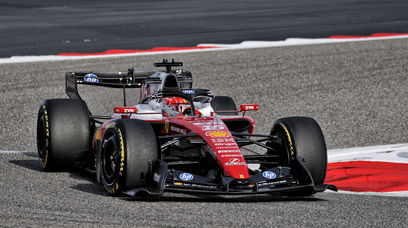Christian Horner has described the curious tipping point that threatened to derail Red Bull's season in an exclusive RacingNews365 interview. The RB20 machine started the season in dominant form with seven wins from the first 10 races, but then suffered an alarming drop in form, with the nadir coming at the Italian GP at the end of the European season. Max Verstappen had put enough points on the board with those seven wins to ensure a comfortable buffer to the chasing pack in the slump, with a further two wins in Brazil and Qatar ensuring he became a four-time world champion, although the team could only finish third in the constructors', in part due to Sergio Perez's poor season. After the Miami Grand Prix in May, it was generally considered in F1 that McLaren's MCL38 was the fastest car on the grid, as Horner explained the series of events that hit Red Bull in the early summer. "I think it almost felt like something had changed, because suddenly we had not just one team, but three teams become very competitive and we seemed to lose competitiveness from winning races at a canter in the first four or five races," he told RacingNews365. "At that point, Stefano [Domencali] was telling me to slow down and stop winning races and sprints by 20s seconds - it was a massive shift. "Suddenly our tools didn't correlate with what we were seeing on track, and then that is where Max played a crucial role, because when your tools aren't behaving, the biggest sensor and most feedback you get is from the driver. "This year, he really rolled up his sleeves, worked tirelessly with the engineering staff to give the direction of: 'Right, this is where we need to focus, this is where the problems are that I am experiencing and this is what we need to address." When pushed about what had exactly changed post-Miami, Horner remained tight-lipped. "That is still to be explained, but it felt like something had changed," he said. Article continues below.
Horner exclusive interview
Horner went onto explain how the team managed to rally during the summer months when it did not have the fastest machine, caused in part by an upgrade package introduced at the Emilia Romagna Grand Prix. "We started the season with a very competitive car and then around Miami, McLaren suddenly made a step, and the upgrades we brought to Imola made the car a lot more peakier," he continued. "Max won some big races at Imola, in Barcelona and in Montreal but we didn't have the fastest car and he couldn't make any mistakes and we had to be absolutely on it, operationally, and that was crucial. "Through the summer months, at Silverstone, we had a good race strategically, we nearly won it through the strategy, were unlucky not to win in Austria and then on the days we couldn't win, bagging points in [Max's] home race, in Singapore, Monza and Azerbaijan. "It was important to capitalise on every single point that we could get and then managing to get a bit of performance back on the car for the end of the year, which Max was then able to exploit."
Most read







